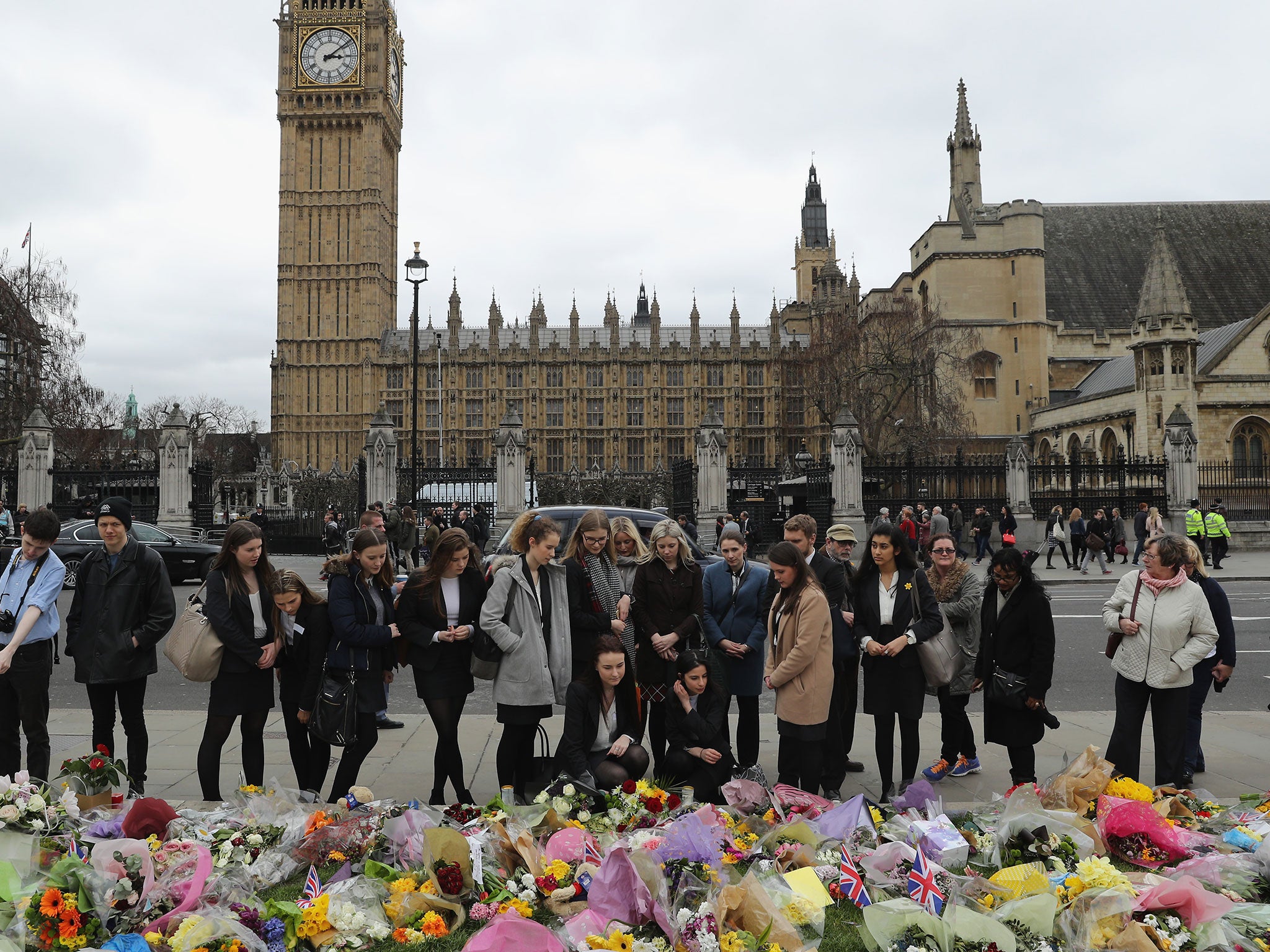Westminster attack inquests - latest updates: Coroner gives conclusions on how victims of terror attacker Khalid Masood died

The inquests into the deaths of the victims of the Westminster attack are due to conclude.
Chief coroner Mark Lucraft QC is due to give his conclusions at the Old Bailey on the deaths of four civilians and police officer Keith Palmer, who were murdered by terrorist Khalid Masood.
He will consider whether factors including security at the Houses of Parliament, the lack of barriers on Westminster Bridge, police body armour and security service investigations into Masood played a role in their deaths.
Please allow a moment for the live blog to load.
On Tuesday the court heard closing submissions, with Jonathan Hough QC, for the coroner, saying the inquests should conclude all five victims were unlawfully killed.
He said: “Each was murdered in a terrorist atrocity which was no less brutal for its lack of sophistication.”
Masood, 52, drove into pedestrians on Westminster Bridge on March 22 last year, killing American tourist Kurt Cochran, 54, retired window cleaner Leslie Rhodes, 75, Aysha Frade, 44, and Romanian tourist Andreea Cristea, 31.
He then stormed through gates near the Houses of Parliament and fatally stabbed Pc Palmer with two knives.
In his closing argument, Gareth Patterson QC, for families of victims on the bridge, urged the coroner to make a report on the circumstances of the case to “protect the public”.
On the role of MI5, whose knowledge of Masood has been heavily scrutinised, he said: “We do think there is room for improvement in terms of decision-making.”
He suggested security services should look again at when to investigate suspects and when to stop, and to take account of violent backgrounds.
Mr Patterson also called for the Government to “try again” with tightening rules for hiring cars.
Dominic Adamson, representing PC Palmer's widow Michelle, said that there was “a systematic failure” in protecting unarmed officers on guard at the Palace of Westminster.
He told the coroner: “In my submission it is very clear that you can be satisfied that as a result of those failures the consequences for Pc Palmer were that there was a substantial loss of the opportunities for him to be saved.”
No firearms officer had been near Carriage Gates, where Pc Palmer was on duty, for nearly an hour before Masood's attack.
Susannah Stevens, representing the officer's family, said: “If there had been authorised firearms officers present at that time, in our submission, on the balance of probabilities they would have been able to prevent a loss of an opportunity of saving Pc Palmer's life.
”Or to put it another way, on the balance of probabilities, their absence contributed to Pc Palmer's death.“
The court will hear further closing submissions in the morning, before the coroner begins giving his conclusions.
A doctor who carried out a post-mortem on Mrs Frade said he noticed "significant injuries" including a "devastating and unsurvivable" head injury, as well as multiple other injuries. There were also devastating internal injuries that would have been fatal separately.
He said she "appeared to be completely unaware" of the approaching car, and in his view there was a chance of fatality from the initial impact of Masood's car even if she wasn't thrown into the path of the bus.
The cause of death was recorded to head and chest injury. The pathologist said the death was "instantaneous and she would not have suffered."
Judge Lucraft is now addressing the death of Andreea Cristea, a Romanian tourist who was on holiday in London. She had stopped on the bridge to take photographs with her boyfriend at the time and was thrown into the River Thames.
Ms Cristea was in the water for little more than five minutes before being recovered by a London Fire Brigade boat.
Her boyfriend standing metres away had his foot run over by the car and then noticed that Ms Cristea was "nowhere to be seen" after it moved onwards.
He found her phone and glasses "in a pool of blood" after trying to call it.
"At one stage he thought about jumping into the river himself," Judge Lucraft said. He tried to tell police officers what happened but they were "trying to clear the area".
He later received a call from her sister that she had been found and taken to hospital, where she later died.
Michael Brown, who was driving across Westminster Bridge, saw Masood's vehicle hitting people as it drove long the pavement.
He saw Ms Cristea get hit and "turn over and over" as she fell into the river. He got out of his van, called 999 and looked for her in the river.
He spotted her being carried by the current under the bridge and started shouting to a boat pulling out of a nearby pier, who acknowledged his call.
Mr Brown then went to help others.
The captain of a City Cruises boat said they had a "man overboard" procedure for someone being given a ladder to climb back on, but no procedure for finding someone unconscious.
He noted what "looked like a pile of rags" and then saw Mr Brown waving and screaming that there was someone in the water.
As they got closer "it was clear it was a body". There was a "lot of blood around her" in the water and it was "physically impossible" to pull her on to the boat.
Judge Lucraft says it "did not occur to them that she had only just gone into the water".
The fire boat was fitted with a crane that enabled Ms Cristea to be recovered within seconds, and took her to a lifeboat station.

